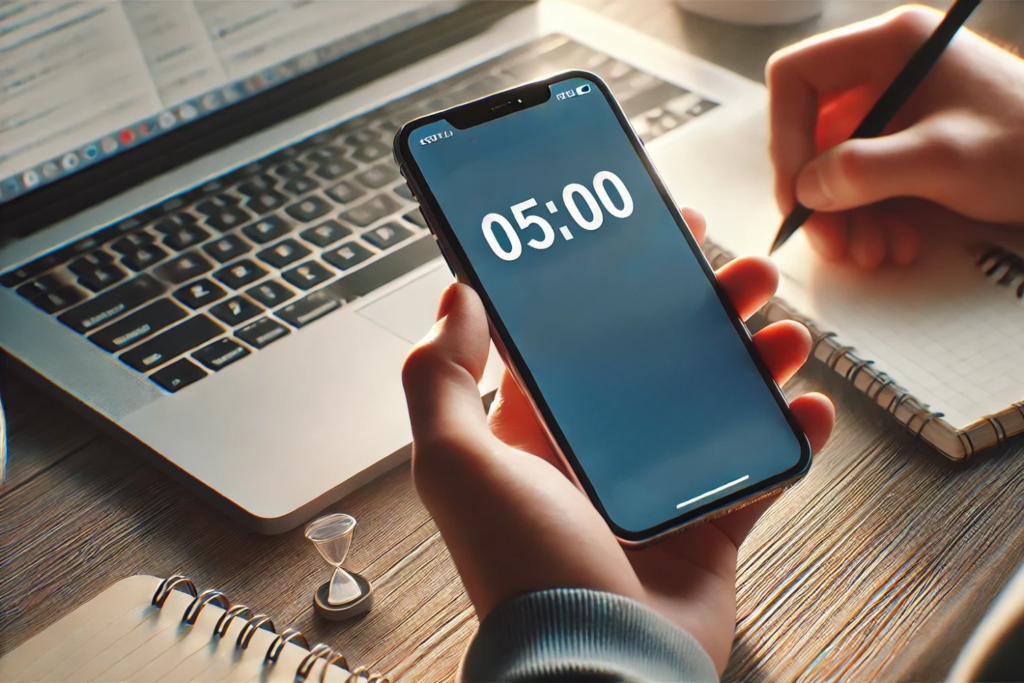🚫 The Lie of the 5AM Hustle
For a brief and shameful month in 2021, I tried to become a “5AM person.”
You know the type. The ones who rise before the sun, meditate, journal, drink warm lemon water, run a half-marathon, and post about it on LinkedIn — all before 8 a.m.
I lasted 17 days.
By day 18, I was sleep-deprived, resentful, and somehow less productive. My brain felt like mashed potatoes, and I started resenting my own alarm clock like it had betrayed me personally.
The problem wasn’t just the wake-up time. It was the myth underneath it: that productivity is about waking earlier, optimizing everything, and squeezing performance from every second.
But the best productivity hacks that actually work don’t make your day look impressive — they make your life feel better.
And that’s why they work.
🧠 Why Most Productivity Hacks Fail
Let’s start with this: you don’t need more motivation. You need less friction.
Friction is every invisible barrier that makes a task feel harder than it is. Browser tabs. Guilt. The “I’ll start later” lie. Mental clutter. Unrealistic expectations.
The productivity hacks that actually work aren’t about pushing harder.
They’re about removing what slows you down so that action becomes easier — automatic, even.
Think of it like this:
You don’t push a shopping cart with square wheels and then blame your legs.
You change the wheels.
🔧 Hack #1: The 5-Minute Start Rule

This one’s simple, but gold: start anything — but only for five minutes.
Behavioral psychologists call it a “micro-start”. Once you’re in motion, the brain shifts from resistance to engagement. Suddenly, the task isn’t intimidating — it’s just the thing you’re already doing.
Try this:
- Set a timer.
- Start for 5 minutes.
- If you want to stop, fine. But chances are, you won’t.
It’s the kind of productivity hack that actually works because it lowers the entry barrier, not your standards.
Want to go deeper? Read more on habit building and behavior change.
🪟 Hack #2: One Window, One Task
Multitasking is the enemy of momentum.
Research shows that switching tasks can cost you up to 40% of your productive time — and your focus may take 20+ minutes to recover.
So try this:
- One task, one browser tab.
- Shut down Slack, email, and anything that pings.
- Do the thing. Then move on.
This is a productivity hack that actually works because it respects your brain’s limits instead of pretending you’re a robot.
🎯 Hack #3: The Daily Highlight

Each morning, ask yourself:
“What’s one thing that would make today feel like a win?”
Then protect time and energy for that thing. That’s it. If you get it done, the day counts.
This concept comes from Make Time by Jake Knapp and is one of those productivity hacks that actually work because it gives you clarity, not more chaos.
🧹 Hack #4: Clean the Runway
Clutter — digital or physical — drains focus.
Before starting focused work, take 3–5 minutes to clear your mental and physical runway:
- Close extra tabs and simplify your screen
- Tidy your space
- Jot down distractions
- Silence unnecessary alerts
You’re not “wasting time cleaning.” You’re preparing your brain for takeoff.
💤 Hack #5: Schedule Recovery Like a Boss
If you don’t rest, you don’t produce — it’s that simple.
The productivity hacks that actually work treat recovery as a performance tool, not a luxury.
Try this:
- 50-minute work blocks with 10-minute breaks
- Screen-free lunch
- A 5-minute walk instead of doomscrolling
Rest isn’t what you do after you’ve earned it — it’s what makes progress possible.
❌ Productivity Fads to Ignore
Let’s throw some myths under the bus:
- Waking up at 5AM when your body hates it
→ Not discipline. Just sleep deprivation. - Bullet journaling every corner of your life
→ Planning fatigue is real. You don’t need a color-coded manifesto. - Downloading 10 new productivity apps
→ You’re not optimizing. You’re procrastinating in disguise.
Truth is: doing fewer things with full attention beats juggling 12 to-dos halfway.
💡 Final Thought: Do What Actually Works
No hack should feel like punishment.
The productivity hacks that actually work don’t demand hustle porn or monk-level discipline.
They help you get into motion, reduce friction, and protect what matters most.
And none of them require you to wake up before the birds.




I must say this article is extremely well written, insightful, and packed with valuable knowledge that shows the author’s deep expertise on the subject, and I truly appreciate the time and effort that has gone into creating such high-quality content because it is not only helpful but also inspiring for readers like me who are always looking for trustworthy resources online. Keep up the good work and write more. i am a follower. https://webdesignfreelancerfrankfurt.de/
My brother suggested I might like this website He was totally right This post actually made my day You cannt imagine just how much time I had spent for this information Thanks